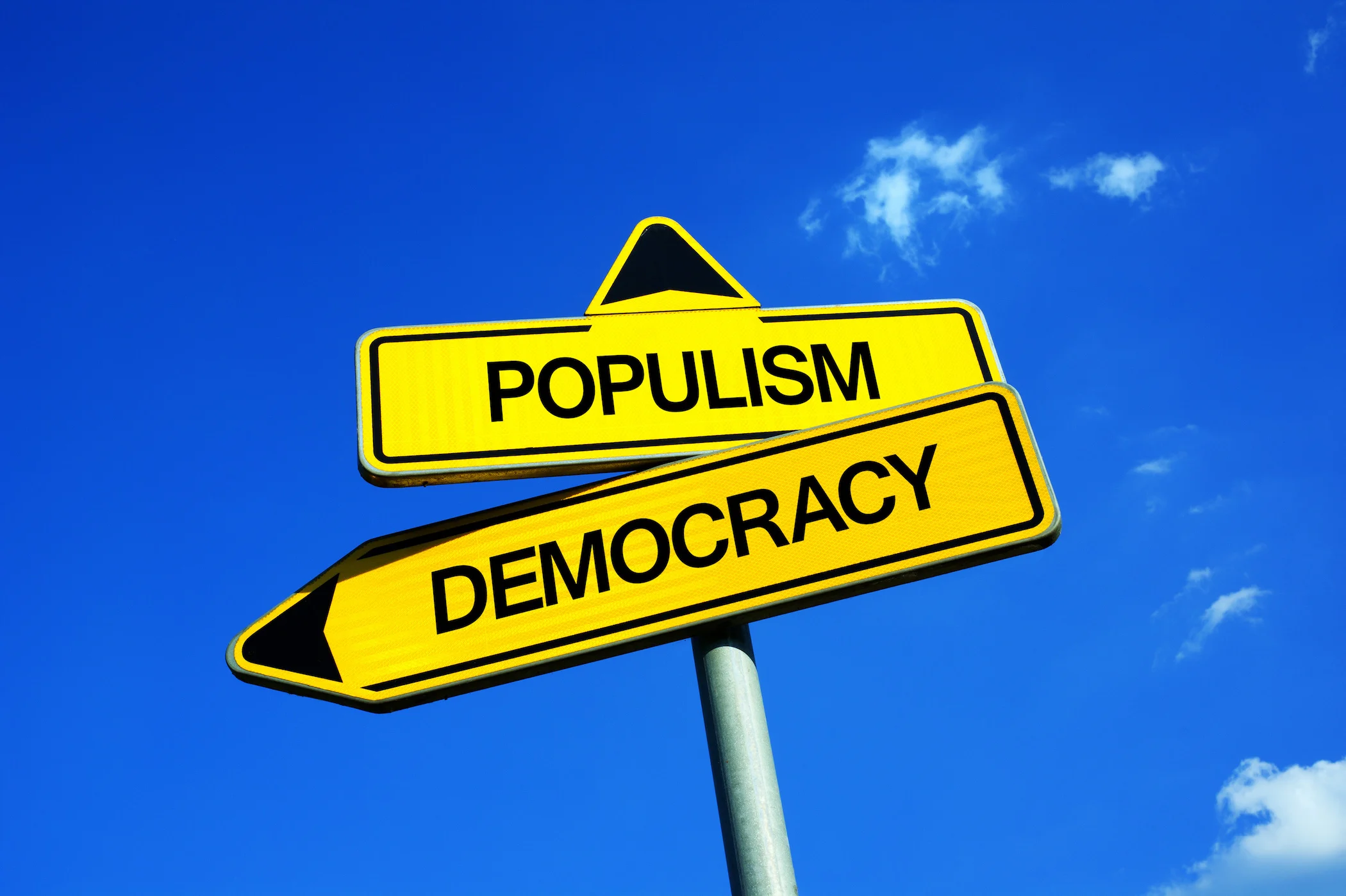
Across the world, democracy is facing a new challenge: the growth of populism. Populist leaders, who are frequently charismatic and preach national regeneration, capitalize on public dissatisfaction with political elites and a perceived loss of national identity. Their ability to undermine democratic institutions and aggravate social divisions poses numerous problems, which needs to be considered and addressed.
Understanding Populism
Populism is a political ideology that supports ordinary people over a perceived elite.
Populist leaders depict themselves as outsiders, free of the system, who pledge to restore power to the “true” people of the country. This narrative frequently addresses concerns about economic disparity, immigration, and cultural change.
Populist leaders share a few crucial qualities. They use strongman language to emphasize both national pride and a sense of nation under the threat. They simplify complex issues by offering easy but overly simplistic solutions. They also slander their opponents frequently presenting them as corrupt or out of touch with the interests of the people.
Drivers of Populist Growth
Several significant elements have contributed to the emergence of populism during the last few decades.
Economic discontent, driven by rising income disparity and job losses as a result of globalization, exacerbates dissatisfaction with traditional economic models, which populist leaders vow to address. Moreover, falling trust in established institutions such as political parties and the media makes room for populist personalities, who portray themselves as outsiders fighting a corrupt system. Identity politics, fueled by concerns about rapid demographic changes, adds to the attraction of populist narratives, which are frequently centered on a narrow definition of national identity and scapegoating minorities. Furthermore, the advent of social media gives populist leaders direct ways to express their messages, creating echo chambers that strengthen their power.
Populism and Democracy
Populism poses serious risks to democratic regimes, especially in the longer run. One key concern is the decline of democratic institutions. Populist politicians frequently destroy institutions like the judiciary and independent media only to consolidate their power by weakening the checks and balances, which are essential for functioning democracies. Furthermore, populist politicians’ polarizing rhetoric exacerbate social and political differences, making compromise and cooperation impossible, while damaging the democratic process. Additionally, there is a risk that populist leaders may prioritize the interests of a small majority over minority rights, thus leading to discrimination and a loss in tolerance in society.
Case Studies
Vladimir Putin rose to power in 1999, at a period of political and economic instability in Russia. Putin, presenting himself as a strong leader capable of restoring order and national pride, appealed to nationalist sentiment of Russians to strengthen his support base. He portrayed himself as a defender of traditional Russian values and a bulwark against alleged Western hostility. However, Putin’s presidency has resulted in a concentration of power, which has weakened democratic institutions. His assault on political opposition, tight control over the media, extension of his term in office till 2030 have all led to the erosion of Russia’s democratic fabric, with power increasingly consolidated in his hands.
Imran Khan came to power in Pakistan in 2018, promising to eliminate corruption and restore the economy, signaling a significant shift in the country’s political environment. He fiercely campaigned against corruption and promised significant reforms, once elected. However, criticism arose when Khan took over power. His Government’s policies, concentration on anti-Western rhetoric and attempts to control the media were unprecedented. Despite initial strong support for his reformist agenda, Khan’s Administration was questioned about its devotion to democratic values and institutions. Furthermore, Khan’s populist rhetoric deepened societal divisions in Pakistan, resulting in extreme polarization. Following his removal, political tensions rose further, resulting in more episodes of violence and damage to state infrastructure. The events of May 9th, 2023, demonstrate this divide evidently, emphasizing the volatile nature of Pakistani politics following Khan’s reign.
Also Read: The Idolatry Trap: How Deifying Politicians Erodes Democracy
Narendra Modi, a prominent Hindu nationalist leader, took power in India in 2014 and was re-elected in 2019. Modi’s administration has come under fire for its treatment of religious minorities, particularly Muslims and Sikhs, as well as its suppression of opposition.
Modi’s Government has pursued discriminatory policies, such as the contentious Citizenship Amendment Act (CAA), which though provides a path to citizenship for non-Muslim migrants but discriminately excludes Muslims, and the revocation of Occupied Jammu and Kashmir’s special status. There have also been concerns about the loss of democratic principles under Modi’s leadership, including as limits on free expression and attacks on press freedom. These moves have sparked arguments about India’s democracy and its ramifications for religious and ethnic minorities. With Modi likely to get reelected, these ills are likely to persist in foreseeable future.
The emergence of populism represents a double-edged sword for global democracy.
While populist leaders frequently capitalize on legitimate concerns and organize elements of the populace dissatisfied with established institutions, their words and actions can undermine democratic norms and aggravate societal divisions. These case studies, ranging from Putin’s consolidation of power in Russia to the controversy surrounding Khan’s tenure in Pakistan and Modi’s governance in India, demonstrate the multifaceted issues that populism poses to democratic institutions. As democracies navigate these treacherous waters, it is critical to address the risks posed by populist movements while upholding plurality, tolerance, and institutional integrity.
The opinions shared in this article reflect the author’s personal views and do not necessarily align with the institution’s official stance.



















Leave a Reply